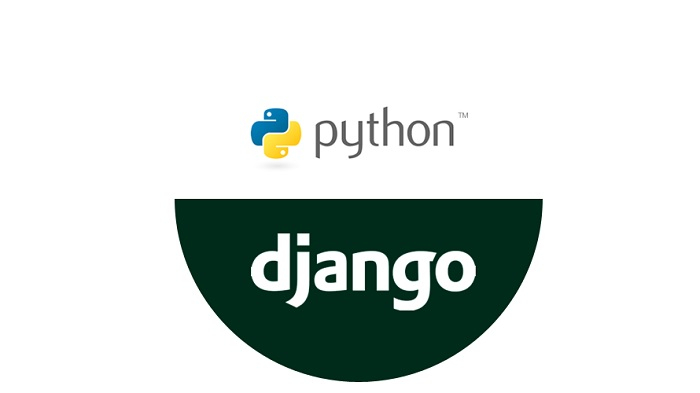
 Data Structure
Data Structure Networking
Networking RDBMS
RDBMS Operating System
Operating System Java
Java MS Excel
MS Excel iOS
iOS HTML
HTML CSS
CSS Android
Android Python
Python C Programming
C Programming C++
C++ C#
C# MongoDB
MongoDB MySQL
MySQL Javascript
Javascript PHP
PHP
- Selected Reading
- UPSC IAS Exams Notes
- Developer's Best Practices
- Questions and Answers
- Effective Resume Writing
- HR Interview Questions
- Computer Glossary
- Who is Who
What is the best Python web app framework and why?
Django is considered the best Python web framework for building database-driven websites.
Django is an open-source full-stack web framework with an MVT (Model View Template) design. It is made up of a set of components and modules that aid in speedier development and is utilized by some of the world's most prominent firms, including Instagram, Mozilla, Spotify, Quora, YouTube, Reddit, Pinterest, Dropbox, bitly, Google, Disqus, and others.
In this article, we will look at why Django is the most popular, preferred, and regarded as the greatest framework for web development. We'll go over its features one by one to see why it's so popular.

Why is Django best for web development?
Django follows the Don't Repeat Yourself (DRY) principle, resulting in a time-saving framework. In other words, you don't have to rewrite existing code because Django lets you build your website like a Lego set. Because of the availability of helper objects, the framework is well-suited for high-load applications and can reduce development time. This is because of the architecture.
Below are the reasons for considering Django as the best framework.
Simplifies Development to a Great Extent
To begin, Django is based on the Python programming language, which is simpler than other high-level programming languages such as Java or C++. It features pluggable modules and libraries, which significantly save development time because you are not building code from scratch, but rather reusing existing code. Moreover, Django's documentation is very well covered, and even beginners can dive into it and start building web apps because it is more like a practical tutorial that gives hands-on experience in developing a basic application.
ORMs (Object Relational Mappers), Forms, Testing, Templates, Session management, Admin Dashboard, Authentication mechanism, Templates, and many more are examples of "batteries." This makes development simple and quick.
Rich ecosystem
Developers recommend reading Django like a system. What they mean is that Django comes with a variety of third-party applications. Depending on the needs of the project, these applications can be incorporated. Consider Legos to help you visualize this. There are numerous Lego blocks available. Almost every app development project includes an authorization "block" or an email sending "block." Django is made up of numerous applications, such as those for authorization and email sending, that may be simply integrated into a system.
Django has been around for 11 years and has gone through major stages of development. Many things have been improved, and many new things have been added. Most importantly, if you're unsure how something should function with Django, you can generally find an answer. Thousands of others must have solved your problem, and you can find a solution given by the dedicated Django community.
It has built-in and up-to-date security features.
If you wish to integrate security or authentication mechanisms, you don't have to develop them from scratch; instead, simply plug them into the code. Django provides a highly secure approach to online application development by preventing threats such as XSS (Cross-Site Scripting), CSRF (Cross-Site Request Forgery), SQL injection, and others.
Because it does not rely on external, third-party security measures, it has complete control, as third-party libraries or modules can have issues that damage your system. Django is also robust and highly tested, which implies that it is used, maintained, and developed by millions of developers worldwide. It is up to date on the current security trends in the cybersecurity field and thus trustworthy.
Pluggable
Django is a pluggable framework that may be extended with plugins. Plugins are software components that enable developers to add a specific feature to an app while allowing for extensive customization. There are hundreds of tools available to assist you in integrating Google Maps, creating sophisticated permissions, or connecting to Stripe to process payments. If you need to scale your project later, you can unplug some components and replace them with others that fit your present requirements.
Better for SEO
Python is well-known for its human-readable code, which is advantageous if you want your site to rank high in search results. Django allows you to develop readable website URLs and links by employing the most relevant keywords and SEO best practices.
And anyway, a domain name is nothing more than a "human-readable" string that corresponds to a "computer-friendly" set of numbers known as an IP address. People are obsessed with having the right domain name, but they often overlook the URL slug?Django can help with that.
Appropriate for Any Type of Project
Django can help you with everything from a small project to building a large website with millions of users. Other frameworks frequently demand you to separate them based on their scalability, but with Django, you don't have to worry about your project's requirements and scale. You can use the built-in features if necessary or leave them alone.
Django is utilized by web developers of all types, from small startups to big firms like as Spotify and Quora. Although it can be used for small projects, because it has so much to offer, it performs incredibly well with large projects that have a large user base and heavy traffic or flow of information. It is also versatile and cross-platform, allowing you to design apps that can operate on Windows, Linux, or Mac, and it supports a wide range of databases.
Implements DRY and KISS
DRY (Don't Repeat Yourself) and KISS (Keep It Simple and Short) are the two most fundamental concepts we follow when programming and Django take care of both. The DRY principle states that you should avoid rewriting code. It should be written once and then reused if necessary elsewhere. Redundancy is bad, and Django takes full advantage of Python's dynamic nature.
The KISS principle states that rather than writing extensive methods, shorter methods with no more than 40 to 50 lines of code should be written. This improves the readability of the code. This also improves security because long codes can introduce issues that are difficult to detect in a lengthy function.
Debugging shorter code is easier.
Provides Support For REST APIs
REST APIs, which stand for REpresentational State Transfer, is a standard method of transferring data or information between computer systems linked by the Internet. REST API methods include GET, POST, PATCH, PUT, and DELETE, each with its own function for transferring, changing, or deleting data. The backend API is primarily responsible for how the database is queried and displayed for further use.
The Django REST framework provides a robust framework for serializing data from the Django ORM, which handles all database migrations and SQL queries. As a result, the developer can concentrate on the logic rather than the lower-level details. Creating APIs is thus a really simple job with Django, and it handles a lot internally.
Conclusion
In this article, we learnt about Django, the most popular web framework in Python. We also studied why and how Django is considered the most popular web framework in Python.

